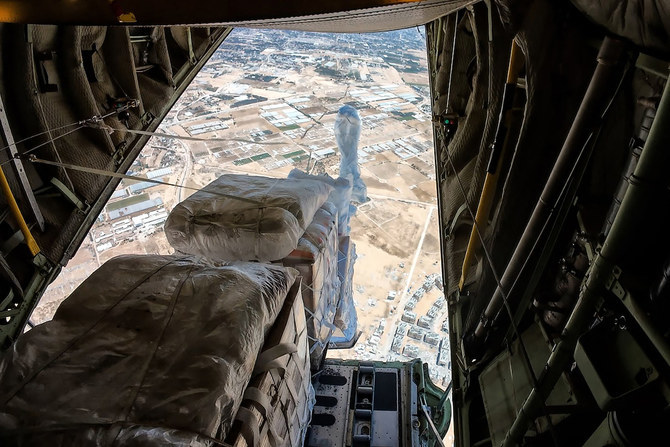CAIRO: Nestled near the iconic Giza pyramids, the Grand Egyptian Museum (GEM) is preparing for a lavish opening, featuring a towering statue of Ramses II and more than 100,000 artefacts, including Tutankhamun’s golden treasures.
After two decades of planning, the GEM is set to open fully on July 3, following a partial opening in October.
Its long-awaited debut comes after years of delays caused by political instability, economic crises, and the global pandemic.
Ahmed Ghoneim, the museum’s director, said the inauguration could span several days, with celebrations extending beyond the museum and pyramids to sites across Egypt and even abroad.
“It will be a spectacular showcase of Egypt’s historical and touristic potential,” Ghoneim told Egypt’s ON TV.
President Abdel Fattah El-Sisi has invited US President Donald Trump and Spain’s King Felipe VI to attend the ceremony.
“This museum is the (world’s) largest museum for a single civilization, which is the Pharaonic civilization,” El-Sisi said in December.
Spanning 50 hectares (120 acres), the GEM is twice the size of both Paris’s Louvre and New York’s Metropolitan, and two and a half times the British Museum, according to its director.
Statue of Ramses II
“The landscape of Egypt contributed to this rich civilization and we wanted to reflect that in the design,” said Roisin Heneghan, co-founder of Dublin-based Heneghan Peng Architects — the firm behind the museum’s design.
“You see the pieces in the museum in the context of the pyramids. You are reminded of the place where this all happened,” she told AFP.
An 11-meter (36-foot) statue of Ramses II greets visitors, leading to a grand staircase lined with statues of pharaohs, gods and sarcophagi, and ending at a window framing the pyramids.
Currently, 12 galleries display around 15,000 artefacts arranged chronologically from prehistory to the Greco-Roman period.
They include Queen Hetepheres’s treasures, such as her intricately carved armchair, in sophisticated lighting after years of being tucked away in the old Egyptian Museum in Tahrir Square.
Even before the official opening, the museum left some of its first visitors awestruck.
“I cannot get over how the lighting is. It is just atmospheric and helpful, and you end up just drawn to everything that is around,” said Philippa Hunt, a tourist from the United Kingdom.
South African visitor Leon Wolmarans said the GEM was a significant upgrade from the old one.
“This is much better organized, much better lit. The architecture is impressive,” he told AFP.
Among the most anticipated displays for the grand opening are the treasures of Tutankhamun, including his iconic gold mask, which will take pride of place in a dedicated gallery.
Attracting tourists
More than 5,000 Tutankhamun artefacts have been transferred to the GEM, though his full collection, including his sarcophagus and the embalmed remains of his daughters, will be revealed at the official opening.
The GEM will also showcase the 44-meter-long cedarwood solar barque, buried near the Great Pyramid around 2,500 BC.
Another boat, still being restored, will offer an immersive experience, with visitors watching conservators at work over the next three years.
With cutting-edge technology such as virtual reality and interactive exhibits, the GEM promises a fresh take on storytelling, making history come alive for younger generations.
The museum website lists entry prices starting at 200 Egyptian pounds (about $4) for adult nationals, and 1,200 pounds for foreigners.
Beyond archaeology, the GEM is central to Egypt’s efforts to revive an economy battered by inflation and debt.
With tourism recovering from the Covid-19 pandemic, the GEM is expected to attract five million visitors annually, adding to a record 15.7 million tourists in 2024.
Elhamy Al-Zayat, former chairman of the Egyptian Tourism Federation, said the museum’s proximity to the newly opened Sphinx International Airport, the pyramids and a growing number of nearby hotels will be a game-changer for Egypt’s tourism sector.
“There will be easy transportation options to and from the museum, making it accessible from anywhere,” he told AFP.
“This will definitely transform Egypt’s tourism industry.”




























